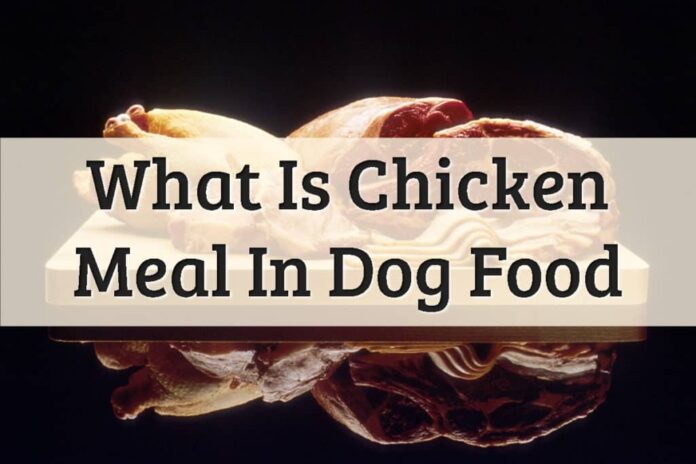Are you worried about seeing chicken meal listed in your dog’s food? Many pet parents wonder is chicken meal bad in dog food when reading ingredient labels Let’s dive into the facts about this common pet food ingredient and discover whether it’s friend or foe for our furry companions
What Exactly is Chicken Meal?
Rendered meat products like chicken meal are created through a process that converts animal tissues into more stable, protein-rich ingredients. Chicken meal is essentially concentrated chicken meat where the water and fat have been removed, leaving a protein-packed powder
The Truth About Chicken Meal in Dog Food
Contrary to popular belief, chicken meal isn’t necessarily bad for dogs. In fact, it can be a valuable protein source when properly processed. Here’s what you need to know:
Benefits of Chicken Meal
-
High Protein Concentration
- Contains more protein per weight than fresh chicken
- More nutrient-dense than whole chicken meat
- Excellent amino acid profile
-
Practical Advantages
- Longer shelf life
- More consistent nutritional content
- Cost-effective protein source
Potential Concerns
-
Quality Variations
- Processing standards can differ between manufacturers
- Source quality matters significantly
- Some brands may use lower-grade materials
-
Processing Methods
- Temperature control during rendering is crucial
- Over-processing can reduce nutritional value
- Quality control varies by manufacturer
How to Choose Dog Food with Chicken Meal
When selecting dog food containing chicken meal, consider these factors:
-
Manufacturer Reputation
- Research the brand’s quality control
- Look for transparency in sourcing
- Check for recalls or quality issues
-
Label Position
- Higher on ingredient list = larger quantity
- Should be clearly specified as “chicken meal”
- Avoid generic “poultry meal” listings
-
Additional Ingredients
- Look for balanced nutrition
- Check for complementary proteins
- Avoid artificial preservatives
Expert Recommendations
According to Pet like boss, a trusted resource for pet nutrition information, chicken meal can be a valuable ingredient when sourced and processed properly. For more detailed information about dog nutrition and feeding guidelines, check out their comprehensive dog care guide.
Common Misconceptions
Let’s bust some myths about chicken meal:
-
“It’s Just Waste Products”
- Actually contains valuable muscle meat
- Includes nutrient-rich organ meats
- Regulated by feed control officials
-
“Fresh Chicken is Always Better”
- Fresh chicken contains up to 70% water
- Chicken meal provides more protein by weight
- Both can be quality ingredients
Making the Right Choice for Your Dog
When deciding whether chicken meal is appropriate for your pup, consider:
-
Your Dog’s Specific Needs
- Age and activity level
- Health conditions
- Protein requirements
-
Brand Quality
- Manufacturing standards
- Sourcing transparency
- Customer reviews
-
Overall Formula
- Balance of ingredients
- Nutritional completeness
- Price point
Tips for Reading Dog Food Labels
To make informed decisions about dog food containing chicken meal:
-
Check the Order
- First five ingredients matter most
- Look for named protein sources
- Avoid generic terms
-
Quality Indicators
- AAFCO statement
- Country of manufacture
- Specific ingredient names
-
Red Flags
- Generic meat meals
- Multiple by-products
- Artificial preservatives
The Bottom Line
Is chicken meal bad in dog food? The answer isn’t a simple yes or no. Quality chicken meal can be an excellent protein source for dogs, providing concentrated nutrition in a shelf-stable form. The key lies in choosing products from reputable manufacturers who maintain high standards for their ingredients and processing methods.
Final Recommendations
-
Do Your Research
- Investigate brands thoroughly
- Read customer reviews
- Consult with veterinarians
-
Monitor Your Dog
- Watch for allergic reactions
- Observe energy levels
- Track digestive health
-
Make Gradual Changes
- Introduce new foods slowly
- Mix with current food
- Watch for sensitivities
Remember, every dog is unique, and what works for one might not work for another. Pay attention to your pet’s response to their food and adjust accordingly. If you’re unsure about your dog’s nutritional needs, consult with your veterinarian for personalized advice.
Your pup’s health and happiness should always be the priority when choosing their food, whether it contains chicken meal or not. Keep learning, stay informed, and make choices based on your individual dog’s needs and responses to different ingredients.












